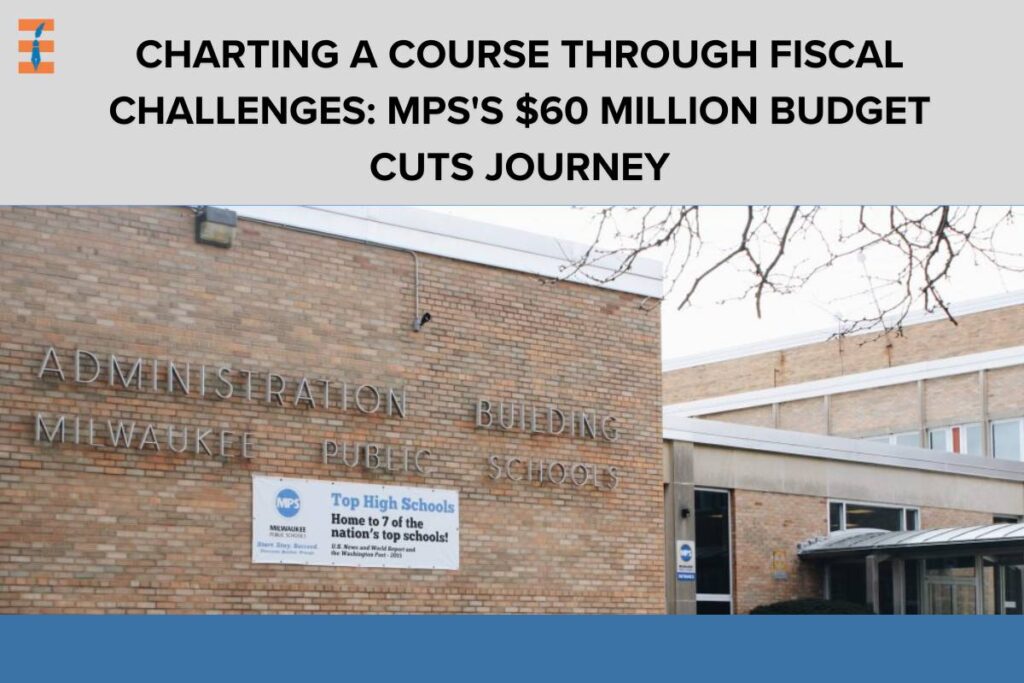Milwaukee Public Schools (MPS) is gearing up for significant budget cuts totaling $60 million, following the approval of increased spending limits by Milwaukee voters earlier this year. The district had sought an additional $200 million to maintain its existing programs but will only receive $140 million from the referendum’s first year, adding pressure to an already tight financial situation exacerbated by the impending loss of federal pandemic funding.
Superintendent Keith Posley acknowledged the challenges ahead in an interview with Urban Milwaukee, noting that various groups have been advocating for the preservation of their programs. However, with limited resources and competing needs, tough decisions lie ahead for Milwaukee Public Schools.
The recent referendum, which raised spending limits by $252 million, did not automatically translate to a corresponding increase in property taxes. Instead, the burden will be shared between Milwaukee property taxpayers and the state, with an estimated annual increase of $128 million for local taxpayers. The state’s contribution is part of a complex funding formula based on factors such as student enrollment, district spending, and local property values.
Budgetary Challenges and Strategic Shifts: Navigating Funding Cuts at Milwaukee Public Schools
MPS has a history of seeking additional funding through referendums, with the most recent request resulting in an initial allocation of $140 million, far below the $200 million deemed necessary for program sustainability. The incremental increases over the next three years, though helpful, won’t fully bridge the funding gap.
One significant challenge facing Milwaukee Public Schools is the loss of federal ESSER pandemic funds after the current school year. These funds, used for various projects including building upgrades and additional staff hiring, will no longer be available, leading to adjustments in budget allocations.
Posley outlined some anticipated changes, including a shift of tutoring expenses from ESSER funds to the board budget. However, unavoidable cuts are expected, affecting programs like Trauma Informed Coaches and Work-based Learning Specialists, despite earlier assurances linked to the referendum’s passage.
The district plans to optimize staffing by relocating some personnel from central administration to classrooms, prioritizing filling school vacancies with existing staff. This move reflects a broader trend in education, with districts nationwide grappling with educator shortages and rising benefit costs.
Navigating Fiscal Waters: Challenges and Opportunities for Milwaukee Public Schools Future
Board members, awaiting the superintendent’s proposed budget, anticipate challenging decisions ahead. The upcoming public hearings and budget amendment processes will involve deliberations on program priorities, potential reductions, and reallocations of resources.
As MPS navigates these fiscal challenges, concerns linger about the long-term sustainability of programs and services amid constrained budgets. The delicate balance between maintaining educational quality, managing costs, and addressing evolving student needs underscores the complexity of modern school budgeting.
Despite uncertainties, Milwaukee Public Schools remains committed to providing quality education while adapting to financial realities. The forthcoming budget deliberations will not only shape the district’s immediate future but also reflect broader discussions on education funding and resource allocation in Wisconsin. As stakeholders engage in these conversations, the resilience and adaptability of MPS and its community will be put to the test in charting a sustainable path forward.
Also Read: Lights, Camera, Education: Exploring the Top Film Schools in the World










